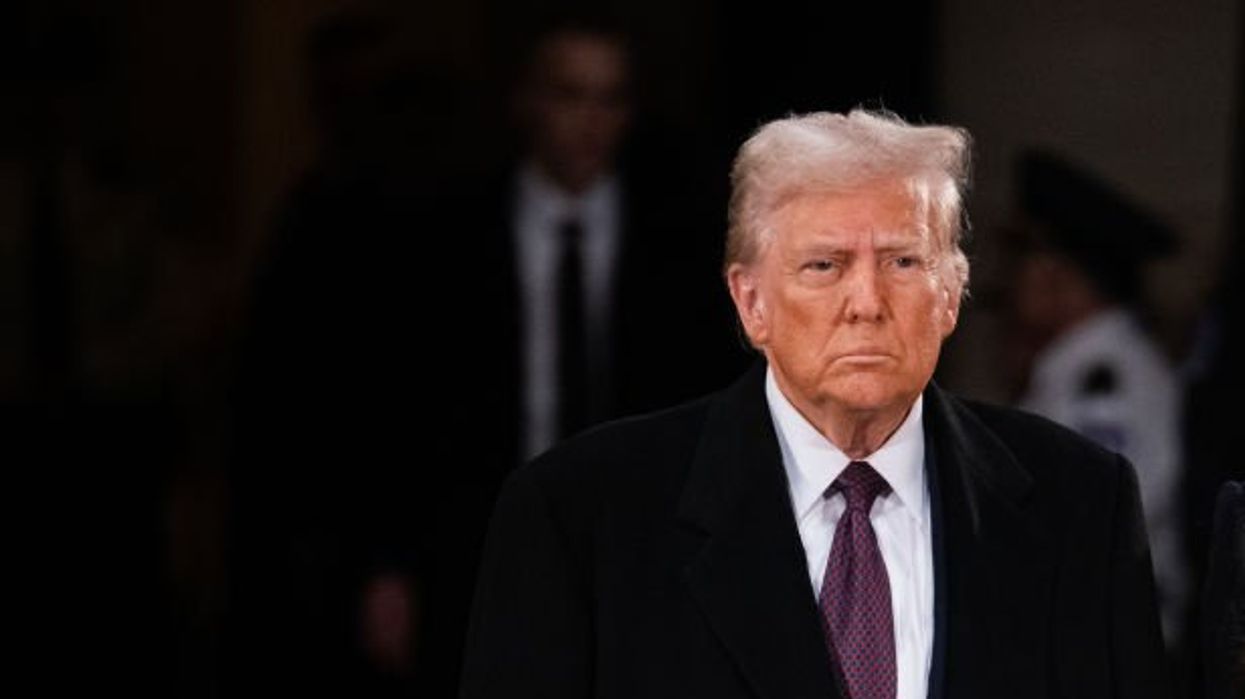With his loyalists lining up for key law-enforcement roles, Trump is fixated on former Republican congresswoman Liz Cheney, who helped lead the January 6 congressional investigation. “Liz Cheney has been exposed in the Interim Report, by Congress, of the J6 Unselect Committee as having done egregious and unthinkable acts of crime,” Trump recently said. Then he added: “She is so unpopular and disgusting, a real loser!”
This accelerates a dangerous trend in American politics: using the criminal justice system to settle political scores. Both the Trumps and the Bidens have been entangled in numerous criminal law controversies, as have many other politicians this century, including Scooter Libbey, Ted Stevens, Robert Coughlin, William Jefferson, Jesse Jackson Jr., David Petraeus, Michael Fylnn, Steve Bannon, Bob Menendez, and George Santos.
Some of these cases represent legitimate law enforcement work. Some don't. The overall trend is clear: the bloodlust to imprison political rivals is intensifying.
The implications are profound. First, criminalizing politics undermines the fundamental principle that the rule of law applies equally to all people. Entangling the passions and biases of politics with the criminal law leads to different prosecutorial standards depending on someone's political affiliations—instead of evidence regarding their guilt or innocence. In American politics, the messenger matters more than the message; the actor matters more than the act. With the rule of law, the opposite is true: all individuals must be treated equally, and their specific alleged misdeeds—alone—are what counts.
Second, criminalizing politics accelerates a disturbing trend toward ever more polarization. It ramps up the stakes from treating opponents as political rivals to treating them like personal enemies.
Hardball politics is, of course, nothing new. It's woven into the fabric of our democratic system. But ultimately, we are one nation in a dangerous world. Our internal disputes shouldn’t consume too much national bandwidth. According to Trump, “I always say, we have two enemies. We have the outside enemy, and then we have the enemy from within, and the enemy from within, in my opinion, is more dangerous than China, Russia, and all these countries.”
This is a dangerous perspective and he couldn't be more wrong. Trump's mentality undercuts Americans’ ability to respond to the myriad international threats we face together. If looked at from a global perspective, Americans’ interests overlap far more than they diverge. Our energy should be focused on understanding and addressing big global challenges, not sending officials we don't like to jail.
Finally, criminalizing politics deters quality people from even entering the political arena. The United States government already has a personnel problem. Look no further than the presidency. We will soon transition from a man with obviously declining mental facilities to a man who tried to reverse the previous presidential election. This is neither normal nor the way it's always been. We shouldn’t further dissuade talented people from entering government over concerns that imperfections and ambiguities in their past will be twisted into politically motivated criminal accusations. The downside of winning office should be losing the next election and not going to jail.
These concerns must be understood in context. It's, of course, true that entering government should neither absolve someone from past crimes nor serve as a license to commit new ones. And even-handed justice requires prosecuting not just the weak and anonymous but also the powerful and well-known.
Striking the right balance is hard. But there should be a strong presumption in favor of leaving politics—and its inherent passions and prejudices—outside the courthouse.
Politicizing the rule of law doesn't just undermine our government and poison our justice system. It imperils our nation as a whole.
William Cooper is the author of “ How America Works … and Why it Doesn’t. ”




















Trump & Hegseth gave Mark Kelly a huge 2028 gift